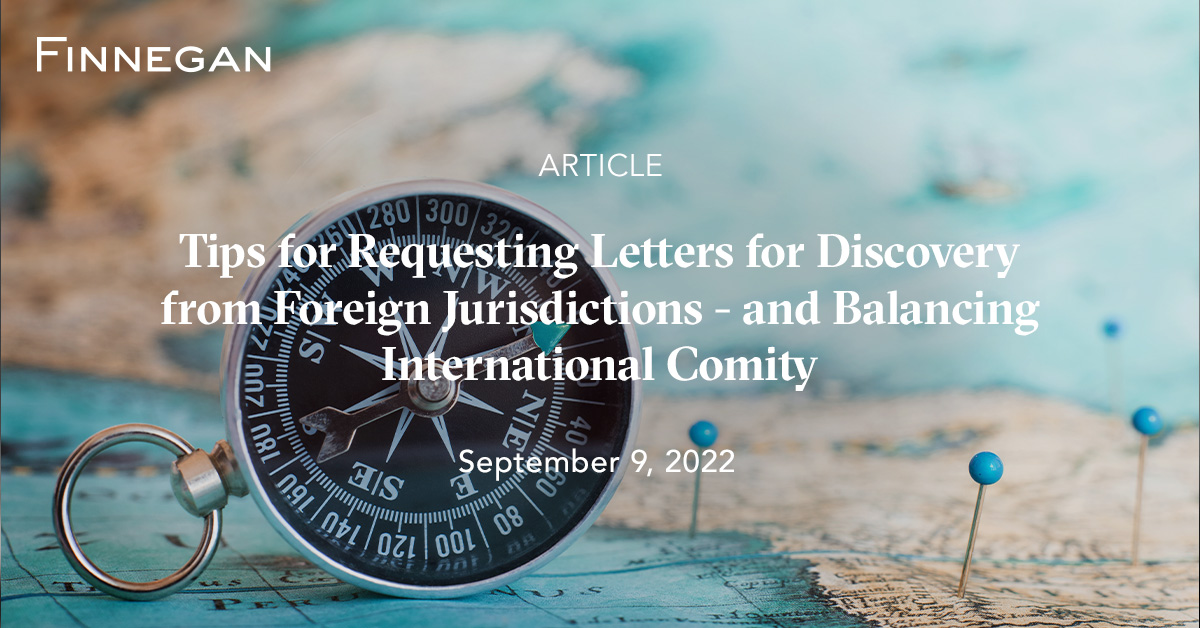A Comprehensive Introduction of Letters Rogatory and Their Legal Implications
Wiki Article
The Duty of Letters Rogatory in International Law: Key Insights
Letters rogatory work as an essential tool in worldwide regulation, promoting cross-border lawful aid by allowing jurisdictions to formally ask for proof and activities from one an additional. Rooted in historic criteria and defined via arrangements like the 1970 Hague Convention, these demands are necessary for cultivating global participation. However, their execution usually runs into substantial difficulties, consisting of inconsistencies in step-by-step hold-ups and legal standards, which can hinder their efficiency. Recognizing the nuances of this process raises critical questions concerning global cooperation and the possible reforms needed to boost its dependability. What effects might these challenges have for future lawful proceedings?Interpretation of Letters Rogatory
In the realm of global law, letters rogatory offer as formal demands issued by a court in one territory to seek help from a court in another jurisdiction. Letters rogatory. These demands are particularly substantial in cross-border legal procedures, where the enforcement of a court's order or the celebration of evidence may be hampered due to jurisdictional constraints
The process generally calls for the asking for court to articulate the specific details or action required from the foreign court, adhering to the lawful protocols and conventions developed between the jurisdictions entailed. When released, the letters rogatory are transferred through polite channels, which might include consular offices or embassies, to ensure that the demand is recognized and acted on by the foreign court. On the whole, letters rogatory exemplify the participating framework crucial for efficient worldwide lawful processes.
Historic Context
Although the practice of letters rogatory has old roots, its formalization within the framework of global regulation emerged substantially in the 20th century. Historically, such demands for judicial aid were utilized in different legal practices, consisting of Roman regulation, where they helped with cross-border participation in lawful issues. The concept got restored attention with the surge of globalization and the boosting intricacy of global lawful interactions.The mid-20th century saw the facility of treaties and conventions that sought to systematize the procedure of letters rogatory. Especially, the 1970 Hague Convention on the Taking of Proof Abroad in Commercial or civil Issues supplied a structured method, enhancing the effectiveness of these requests - Letters rogatory. This duration marked a change from casual arrangements to a more systematic structure, which dealt with the obstacles posed by differing national lawful systems
As states came to be much more synergistic, the need for reliable systems to gather proof throughout borders ended up being obvious, enhancing the function of letters rogatory in helping with international teamwork. Today, they stay an essential tool for getting proof and ensuring that justice goes beyond national borders, reflecting the progressing nature of worldwide legislation in response to international obstacles.
Process of Issuing Demands
The process of providing letters rogatory commonly includes several essential steps made to ensure that ask for judicial help are clear, certain, and certified with both domestic and international lawful criteria. A celebration seeking support needs to prepare an official demand that outlines the relevant truths of the instance, the relief looked for, and the specific evidence or testimony required. This record should be crafted with precision to fulfill the lawful demands of the jurisdiction in which it will be sent.Adhering to the preparation of the demand, it is submitted to the ideal authority, typically a court or an assigned governmental agency. This authority examines the request to guarantee it follows procedural norms and lawful standards. When authorized, the request is transmitted to the foreign jurisdiction through polite networks.
Upon invoice, the foreign court assesses the you can find out more request's conformity with its neighborhood legislations and practices (Letters rogatory). If approved, it continues to perform the demand, which might entail the issuance of subpoenas or the collection of proof. Throughout this process, keeping clear communication in between the requesting and obtaining jurisdictions is vital to make certain effective collaboration and the fulfillment of the request
Challenges and Limitations
Difficulties and constraints regularly occur in the procedure of implementing letters rogatory, commonly coming from varying lawful systems and treatments between jurisdictions. One considerable obstacle is the varying criteria of admissibility for evidence, which can cause difficulties in the approval of paperwork requested with letters rogatory. In addition, the lack of harmony in legal terminology and definitions can create misunderstandings, complicating communication in between courts in various countries.Furthermore, hold-ups prevail as a result of administrative processes, as the request might need to go through several layers of legal authorities before it is satisfied. In some instances, the asked for jurisdiction may lack the needed sources or readiness to cooperate, even more preventing the process. Language barriers additionally contribute to challenges, as accurate translation of legal files is essential for making sure that the designated message is shared without distortion.
Lastly, sovereignty issues might emerge, as some states hesitate to follow demands that they regard as infringing upon their lawful autonomy. These obstacles highlight the intricacies fundamental in making use of letters rogatory, requiring greater harmonization and cooperation among global lawful systems to enhance their effectiveness.

Effect On International Participation
Identifying the importance of letters rogatory in fostering worldwide collaboration is essential, as these requests help with cross-border lawful help and promote joint efforts in civil and criminal matters. By making it possible for one territory to officially ask for assistance from an additional, letters rogatory create a structured legal structure that enhances the performance of international communication between judicial authorities.Using letters rogatory assists to develop mutual trust fund and respect amongst countries, which is crucial in a significantly interconnected globe. They function as a device not only for gathering evidence yet additionally for making certain that legal procedures are upheld across boundaries. This is specifically crucial in combating global criminal offense, where the lack of ability to safeguard collaboration can weaken justice.
Additionally, the dependence on letters rogatory can improve complex lawful procedures, lowering hold-ups and uncertainties in worldwide examinations. The procedural safeguards integral in this procedure add to the defense of private legal rights while facilitating participation amongst states. Ultimately, the impact of letters rogatory on international teamwork emphasizes their function as important tools in the promotion of justice, promoting a collaborative spirit that goes beyond national limits and lawful systems.
Conclusion
To conclude, letters rogatory work as an important instrument in worldwide regulation, promoting cross-border legal assistance and teamwork. Regardless of intrinsic challenges such as differing governmental hold-ups and legal standards, their standard procedures advertise depend on amongst nations. The ongoing advancement of these devices is crucial for improving the performance of worldwide legal processes, eventually cultivating stronger collaboration in both criminal and civil matters across jurisdictions. The value of clear interaction in this context can not be overemphasized.Letters rogatory offer as a crucial tool in international law, helping look here with cross-border lawful help by enabling jurisdictions to officially ask for proof and activities from one an additional.The process generally calls for the asking for court to express the certain info or activity needed from the international court, sticking to the legal methods and conventions established in between the jurisdictions involved. Historically, such demands for judicial help were used in different legal customs, consisting of Roman regulation, where they facilitated cross-border cooperation in lawful matters.The procedure of releasing letters rogatory commonly involves several vital steps designed to make certain that requests for judicial help are clear, specific, and compliant with both domestic and worldwide internet lawful criteria.In addition, delays are common due to bureaucratic processes, as the demand may require to pass with numerous layers of lawful authorities prior to it is satisfied.
Report this wiki page